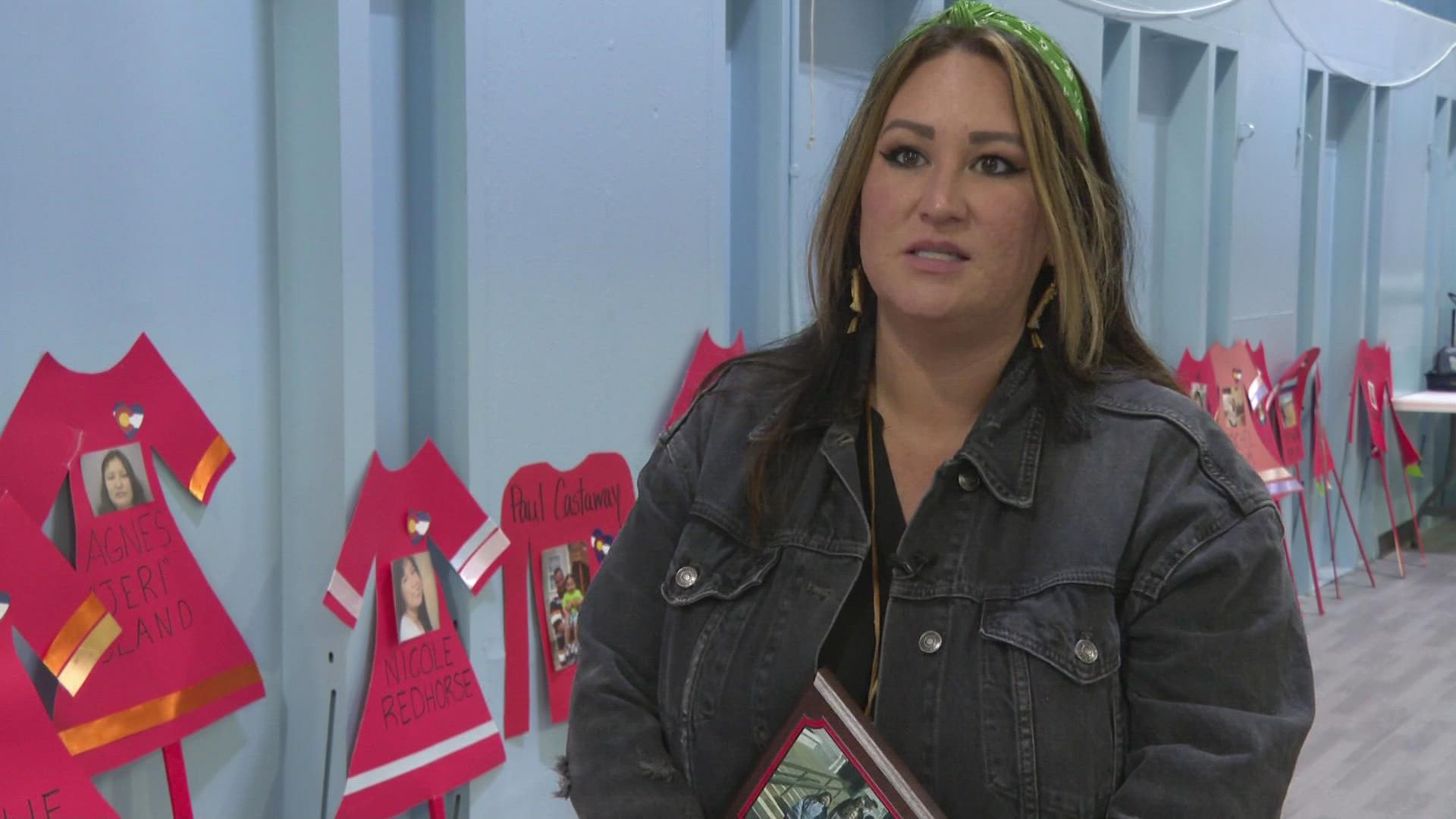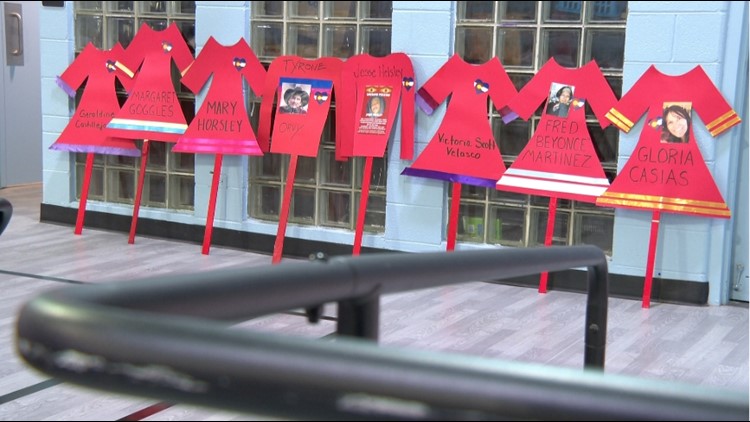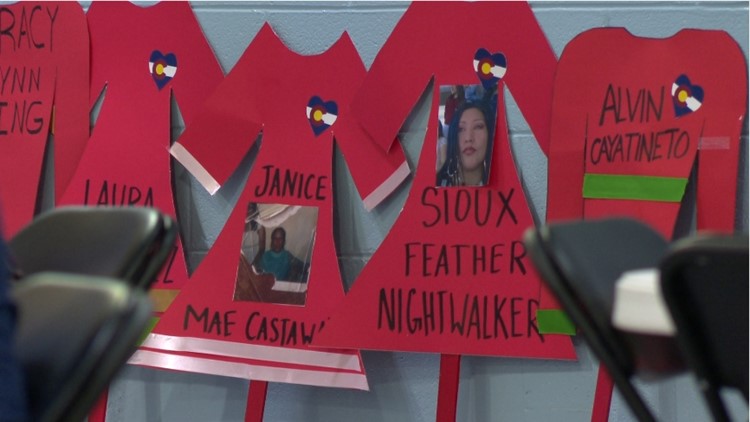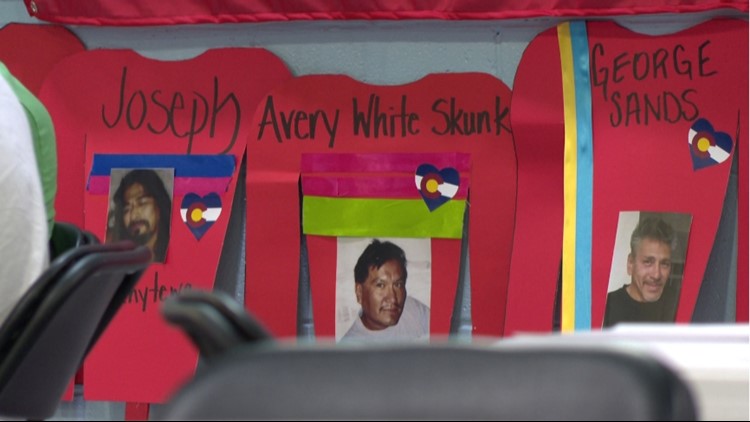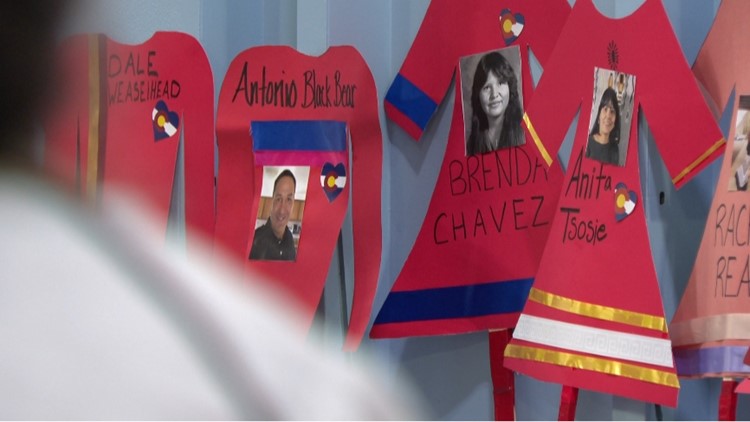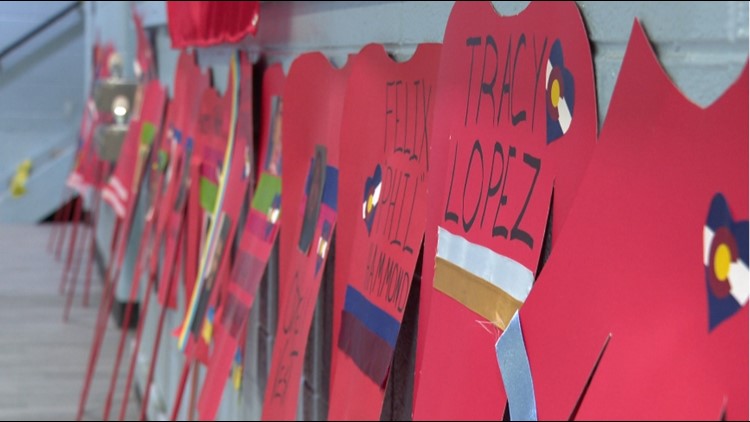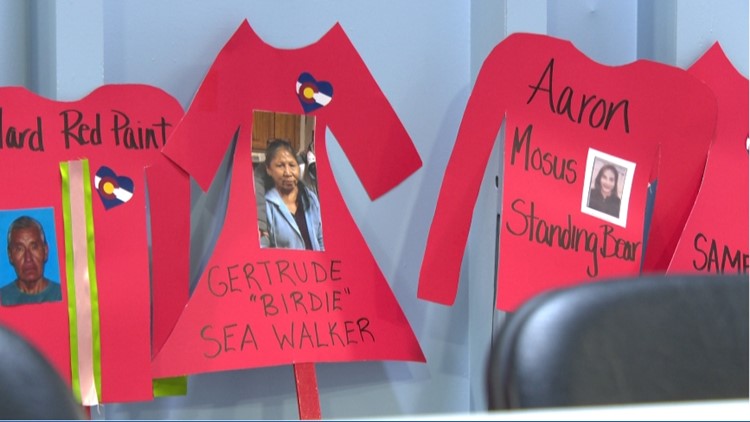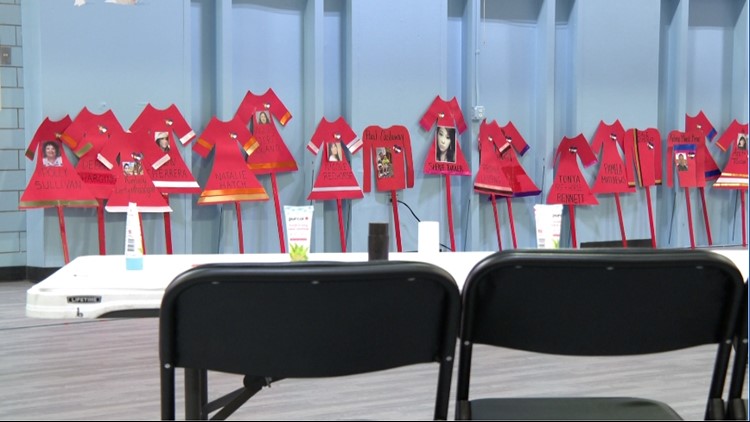DENVER — There is new hope to find answers for family members of missing and murdered indigenous relatives (MMIR). A new statewide office will investigate the cases, some of which are decades old.
On Wednesday, the indigenous community celebrated the passage of a bill that creates the office of liaison for missing and murdered indigenous relatives in the department of public safety.
Inside the celebration at the Denver Indian Center, the walls were lined with the faces and names of dozens of missing and murdered indigenous relatives.
PHOTOS | Celebration at Denver Indian Center
"I believe our oldest case that we have on the list is 1979," said Raven Payment, who is a part of the MMIR taskforce that helped create the legislation. “In working with MMIR we realized that law enforcement, the department of public safety have been woefully unprepared and inadequate in their responses in responding to cases of missing, and murdered, indigenous people in Colorado, but also throughout the United States.”
Payment said nothing has been done with some of the cases for ten years or more.
"Since contact, we have known what it's like to be marginalized and to be missing and murdered," she said. “This office is going to start looking into cold cases of murder victims and missing people and that is also important so that their families have a path forward to healing and have answers as to what happened to their family members."
Payment said they've identified 55 missing and murdered indigenous relatives. Donna Chrisjohn, who's also part of the taskforce and commissioner for the Denver American Indian Commission said the state only recognizes 17.
“Establishing this office will give us a voice, will give us a seat at the table in one of the largest state agencies, the department of public safety which will help us conduct data research, connect pieces to other local and state agencies," said Chrisjohn. “I’m really looking forward to our next steps of really getting the ball rolling, hiring a director, establishing our advisors and our advisory board."
Danielle SeeWalker is another member of the MMIR taskforce and co-chair of the Denver American Indian Commission. She said there isn't an indigenous person she knows that hasn't been personally touched by MMIR epidemic.
"My aunt was murdered last August here right on the streets of Denver," she said. “She is a remembered and loved individual. Her name is Birdie SeeWalker and it was my dad’s sister. Her trial is still ongoing and we still fight for her and I’m still here fighting for her and being a voice for her and others that aren’t here to have a voice anymore.”

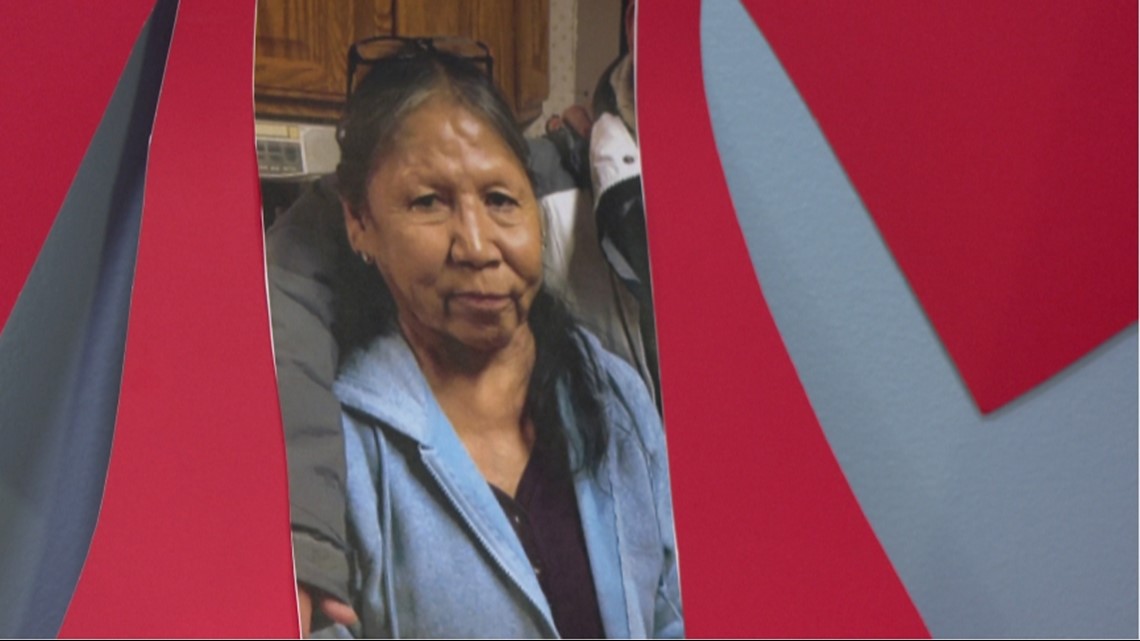
She said this new office, that she and many others have been fighting for, is a great step forward.
"This office is going to help gather the data that we need. It’s going to help put names to individuals. It’s going to help collect and identify the relatives that have gone missing, that have been historically misidentified," said SeeWalker. “It’s not new news that indigenous people have gone missing in media, in data, in reporting and so when the data is collected, it’s often times that native people are misidentified as maybe Latino, Latina, Asian, etc. So, even just basic data collection is putting at us a disadvantage of really having accurate numbers of this problem of missing and murdered indigenous people.”
Chrisjohn said she believes they will uncover more missing and murdered indigenous relatives as they continue this work.
“The indigenous community knows how to voice their own concerns and fight for their own community and their own rights," she said. "We are best fit to solve this crisis and just hear us and listen to us and support our efforts in bringing our missing and murdered indigenous relatives home and to justice.”
Payment said working on the taskforce and advocating for missing and murdered indigenous relatives has been a lifelong effort. She said all of the work they've done is for future generations.
“It’s something that this entire community came together to really fight for to make sure our government is doing right by us when they haven’t in the past," she said. "I want to know that our little boys and girls, my daughter, my son, their children, should they have children, that they’re safe going forward."
The next steps for the office of liaison for missing and murdered indigenous relatives is to appoint an executive director.
SUGGESTED VIDEOS: Colorado cold cases

